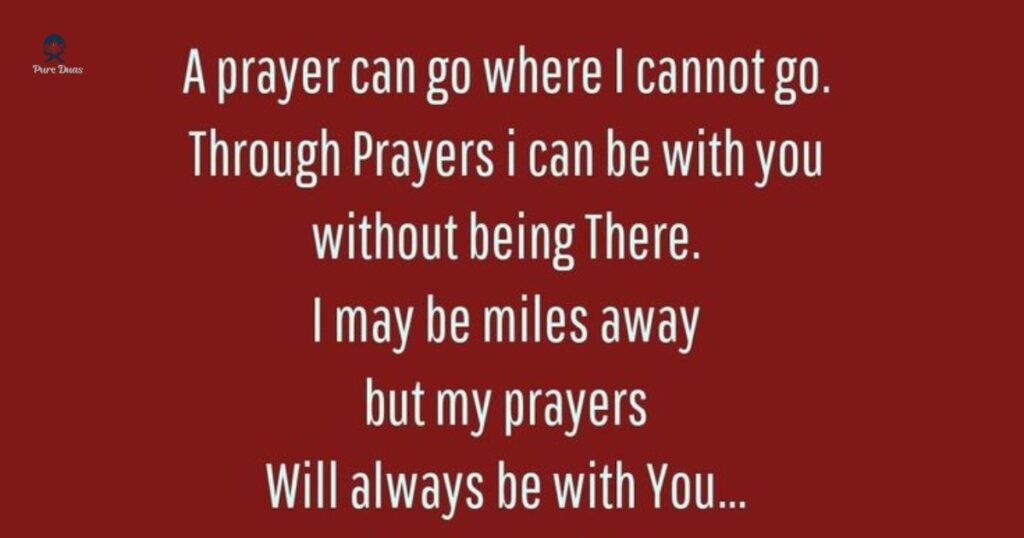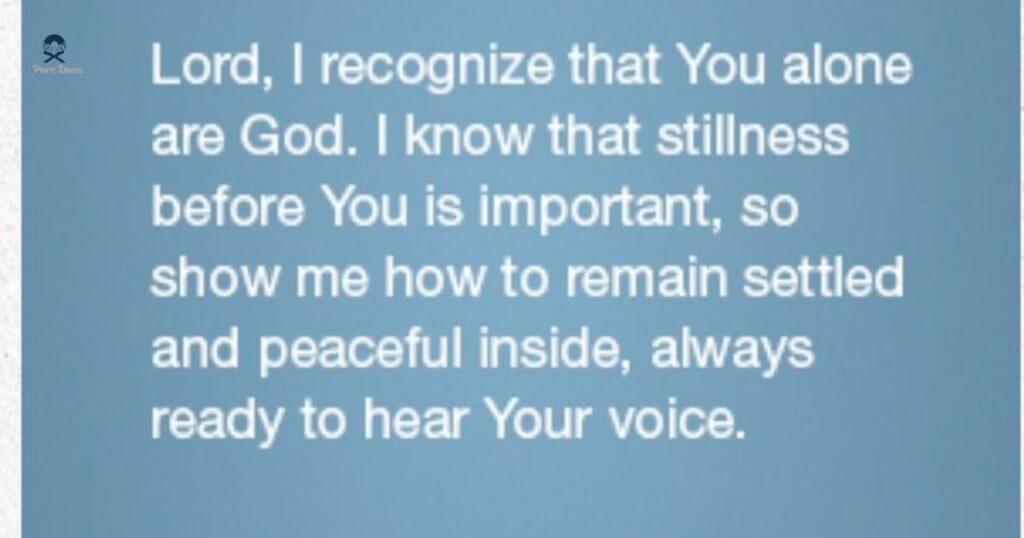Life throws curve-balls. Someone loses a parent. A friend battles cancer. Your coworker faces job loss. In these raw moments, you want to help. You want to say something meaningful. Often, the phrase “My prayers are with you” comes to mind. But does it sound hollow? Does it actually comfort?This phrase carries profound weight when spoken sincerely. It offers spiritual support beyond what ordinary sympathy provides. You’re not just acknowledging pain, you’re promising to lift someone before God. You’re declaring they’re not facing darkness alone.
Yet in our text-heavy culture, this sacred expression sometimes feels automatic. Overused. Even empty. The difference between hollow words and genuine comfort lies in intention. It rests in follow-through. It shows up in compassion paired with action.This guide explores meaningful ways to say “My prayers are with you” across different situations. You will discover when to use it, how to personalize it, and why backing it with tangible help matters. Let’s transform this phrase from routine to revolutionary.
What Does “My Prayers Are With You” Really Mean?
The Spiritual Power Behind These Sacred Words
When you tell someone “My prayers are with you,” you are offering more than sympathy. You’re providing spiritual support. This means actively asking God to intervene. You believe divine power can reach places human hands cannot touch.Prayer is not passive. It is warfare against despair. James 5:16 teaches us that “the prayer of a righteous person is powerful and effective.” Your words become a bridge between someone’s suffering and God’s healing presence.
Why This Phrase Resonates During Difficult Times
Grief isolates. Illness frightens. Uncertainty paralyzes. In these moments, “You are not alone” becomes a lifeline. Your promise to pray reminds hurting people that someone’s interceding on their behalf.When you pray for someone, you are partnering with God’s work. You are inviting God’s peace into chaos. You’re asking divine power to touch what medicine, money, or advice cannot fix.
When to Say “My Prayers Are With You” (and Mean It)
During Times of Grief and Mourning
Death steals words. When someone loses a parent, spouse, or child, language feels inadequate. Yet a sincere “My prayers are with you” offers warmth in cold sorrow.Try saying: “My prayers are with you as you mourn. May God’s comfort surround you like a blanket. Your father’s kindness lives on through you.”Notice the specificity. You mentioned their father. You acknowledged his character. This prevents your message from sounding generic. The brokenhearted need to feel seen, not just pitied.Condolence messages work best when brief but personal. Write a card. Send flowers with a note. Show up at the funeral. Your presence amplifies your words.
Supporting Someone Through Illness and Health Struggles
Illness brings fear. Medical diagnoses shake foundations. Whether someone faces surgery, chronic pain, or mental health struggles, your prayers matter deeply.You might text: “My prayers are with you during treatment. May God restore your strength and bring complete healing. I am believing in good news.”Do not stop at words. Visit if appropriate. Send meals. Offer rides to appointments. Psalm 41:3 promises, “The Lord sustains them on their sickbed and restores them from their bed of illness.”
Offering Comfort in Times of Uncertainty

Job loss. Financial crisis. Relationship struggles. Life’s unpredictable seasons leave people feeling lost. A message like “My prayers are with you during this season” tells them they’re not forgotten.Write: “My prayers are with you as you make these tough decisions. May God guide your steps. I trust his timing is perfect, even when we can’t see it.”Proverbs 3:5-6 encourages us to lean not on our own understanding but acknowledge God in all our ways. Your prayers help someone remember that truth.
Celebrating Milestones While Offering Blessings
Not every prayer addresses pain. Sometimes you are asking God to favor someone’s new job, bless their marriage, or protect their travels.Try: “My prayers are with you as you start this new chapter. May God’s blessing overflow in your life.”These encouraging prayers build people up. They remind friends that God cares about their successes too.
How to Personalize “My Prayers Are With You” for Maximum Impact
Add Specific Details That Show You Care
Generic messages feel robotic. “My prayers are with you” loses power when it sounds automatic. The key? Personalization.Instead of: “My prayers are with you during this hard time.”Try: “My prayers are with you as you grieve your mom. I remember how she always made everyone feel welcome. That gift lives in you now.”Mention their loved one’s name. Reference a shared memory. Acknowledge what makes their situation unique. This transforms routine sympathy into heartfelt prayer.
Adjust Your Tone for Different Relationships
Close friends need a different language than distant coworkers. Your sister wants warmth. Your boss’s mother’s funeral requires respectful formality.For intimate relationships, add emotion: “My prayers are with you, friend. This breaks my heart. I’m here whenever you need to talk, cry, or just sit quietly.”For professional settings, keep it respectful: “My prayers are with you and your family. Please take whatever time you need.”
Cultural and religious sensitivity matters too. If someone’s not Christian, adapt your language. Say “You’re in my thoughts” or “Sending strength your way.”
Pairing Prayer with Tangible Compassion
Faith Without Works: Why Action Matters
James 2:17 states plainly: “Faith without works is dead.” Saying “My prayers are with you” means nothing if you walk away and forget them.Prayer is powerful, but compassion strengthens when followed by deeds. Your words become ministry when backed by help.
Practical Ways to Show You’re Praying
Turn heartfelt prayer into tangible compassion:
- Bring meals: Grieving people forget to eat. A lasagna speaks love.
- Send cards: Written messages create keepsakes they’ll treasure.
- Offer childcare: Free up their time to rest or handle business.
- Run errands: Grocery shopping feels impossible during a crisis.
- Just be present: Sometimes sitting quietly beside someone says everything.
One woman shared: “After my husband died, friends said they’d pray. One actually showed up every Tuesday for months. We’d drink coffee. She’d listen. That was her prayer in action.”
Examples of “My Prayers Are With You” in Real-Life Contexts
Messages for Grief and Loss
Times of grief demand gentle words:
- “My prayers are with you as you say goodbye to your grandmother. May God’s peace guard your heart.”
- “Holding you in prayer today and always. Your husband’s legacy of kindness will never fade.”
- “My prayers are with you and your children. May you feel wrapped in love during this difficult time.”
Prayers for Illness and Recovery
When someone battles sickness, hope becomes medicine:
- “My prayers are with you during chemo. May God’s healing hands touch you. You’re stronger than you know.”
- “Praying for complete healing and strength as you recover. Can I bring dinner this week?”
Encouragement During Uncertainty
Times of uncertainty need faith reminders:
- “My prayers are with you during this job search. May God open doors of opportunity.”
- “Holding you in prayer as you make these big decisions. Trust His timing.”
Blessing Someone’s Success
Celebrate wins with prayerful encouragement:
- “My prayers are with you on exam day! May your mind be clear and focused.”
- “Praying for God’s blessing on your new business. May it flourish beyond your dreams.”
Combine the Phrase with a Bible Verse
Why Scripture Strengthens Your Message
God’s Word brings eternal comfort that human language cannot match. Bible verses add depth to your compassion. They remind hurting people that God’s love hasn’t changed.When you combine with a Bible verse, you’re giving them something to hold onto. Scripture becomes an anchor when emotions rage like storms.
Best Bible Verses to Pair with “My Prayers Are With You”
| Situation | Bible Verse | How to Use It |
| Fear | Isaiah 41:10 | “My prayers are with you. Remember: ‘Do not fear, for I am with you.'” |
| Strength | Philippians 4:13 | “My prayers are with you. You can do all things through Christ who strengthens you.” |
| Grief | Psalm 34:18 | “My prayers are with you. The Lord is close to the brokenhearted.” |
| Comfort | 2 Corinthians 1:3-4 | “My prayers are with you. God comforts us so we can comfort others.” |
| Hope | Romans 15:13 | “My prayers are with you. May the God of hope fill you with all joy and peace.” |
How to Incorporate Scripture Naturally
Don’t force Bible verses awkwardly. Weave them smoothly:”My prayers are with you during this scary diagnosis. Isaiah 41:10 keeps coming to mind: ‘Do not fear, for I am with you; do not be dismayed, for I am your God.’ I’m claiming that promise for you today.”
Alternative Ways to Express “My Prayers Are With You”

When Religious Language Is not Appropriate
Not everyone responds to religious phrases. Mixed faith settings require sensitivity. Professional environments might need neutral language.That does not mean abandoning compassion. The heart behind “My prayers are with you” can shine through alternative expressions.
Sincere Alternative Expressions
- “You’re in my thoughts, and I’m asking God to give you strength.”
- “Holding space for you during this hard time.”
- “You’re not alone, I am here for you.”
- “Thinking of you and believing in peace in your heart.”
These maintain sincerity without religious terminology. Empathy remains central regardless of word choice.
Avoid Using It Casually or Without Thought
Why Sincerity Matters More Than Familiarity
Sacred phrases lose power through overuse. “My prayers are with you” shouldn’t be a social media filler. It’s not a comment you drop on someone’s post without thinking.Sincerity trumps familiarity every time. One genuine “I’m praying for you” beats a dozen thoughtless repetitions.
Signs You are Using It Too Casually
You might be misusing this phrase if:
- You say it to fill awkward silence
- You type it automatically on sad posts without reading them
- You never actually pray after promising to
- You use it as polite goodbye language
Choose Authenticity Over Politeness
Sometimes honesty serves better: “I don’t know what to say, but I care deeply about you.” That vulnerability beats empty formulas.
If you’re uncomfortable praying, don’t promise it. Offer what you can genuinely give: “I’m thinking of you” or “I’m here if you need anything.”
Pray Immediately After You Say It
Making Good on Your Promise
Here’s the hard truth: Prayer commitment demands follow-through. When you tell someone “My prayers are with you,” you’ve made a promise. Honor it.
Simple Prayers You Can Say Right Away
Don’t overthink it. Heartfelt prayer doesn’t require fancy language:”Lord, please comfort my friend. Let Your peace, which surpasses understanding, guard their heart today.””God, I lift up Sarah. She’s scared and hurting. Please remind her “You’re close to the brokenhearted.”These take seconds. Even silent prayers count. Colossians 1:9 says Paul constantly prayed for others. Follow that example.
Create a Prayer Routine for Others
Keep a prayer list on your phone. Set daily reminders. Journal your prayers. These habits transform good intentions into faithful ministry.One pastor keeps a notebook: “When someone asks for prayer, I write their name immediately. I review it every morning. That simple discipline ensures I keep my word.”
Writing “My Prayers Are With You” in Cards and Messages
Crafting Written Messages That Comfort
Written messages offer steady comfort when emotions run high. Cards become keepsakes. Texts provide reminders during dark nights. Handwritten notes carry extra weight. They show you invested time.
Sample Written Prayers for Different Situations

Condolence card: “My prayers are with you as you grieve your sister. Her laughter brightened every room. May God’s comfort surround you like her hugs once did.”Get-well message: “My prayers are with you through recovery. Psalm 103:3 says God ‘heals all your diseases.’ Claiming that today!”Text template: “Been praying for you this morning. Asking God to give you peace and strength today.”
Adding Personal Touches
Include memories: “Remember when your mom taught us to bake cookies? Her joy lives on through you.”Share what you’re specifically praying for: “I’m asking God to calm your anxiety, provide financial breakthrough, and remind you how loved you are.”
Conclusion
The phrase “My prayers are with you” remains one of humanity’s most comforting expressions. It bridges distance and strengthens faith. It speaks of love when ordinary words fail. But its power depends entirely on sincerity. When you mean it, when you follow words with prayer and action, this phrase becomes trans-formative. It becomes a ministry.
You are not claiming to fix everything and not helping someone remember God has not forgotten them. You are offering spiritual support that transcends circumstances and declaring hope when despair feels overwhelming. So next time you say “My prayers are with you,” pause. Actually pray. Add personal details. Back it with tangible compassion. Let your words carry not just sympathy, but the assurance that God’s peace still moves in response to faith-filled prayer. Remember: your simple phrase might become someone’s lifeline.
Frequently Asked Questions
What does “My prayers are with you” mean?
It means offering spiritual support by interceding before God on someone’s behalf. You’re promising to ask divine power to bring comfort, healing, and strength during their difficult time.
Is it okay to say “My prayers are with you” to non-religious people?
Use sensitivity. If unsure about their faith, try alternative expressions like “You’re in my thoughts” or “Sending strength your way.” Compassion matters more than exact wording.
What should I say instead of “My prayers are with you”?
Try “Holding you in prayer,” “You’re not alone,” “I’m here for you,” or “Thinking of you deeply.” Choose phrases matching your relationship and their beliefs.
Should I pray immediately after saying it?
Yes. Making good on your prayer commitment matters. Even brief, silent prayer honors your promise. Actually pray rather than just saying it,sincerity and follow-through build trust.
Can I text “My prayers are with you”?
Absolutely. Written messages provide steady comfort. Texts work great for immediate support. Just ensure your message feels personal, not automatic. Add specific details when possible.
Read More Blogs:Pure Duas
